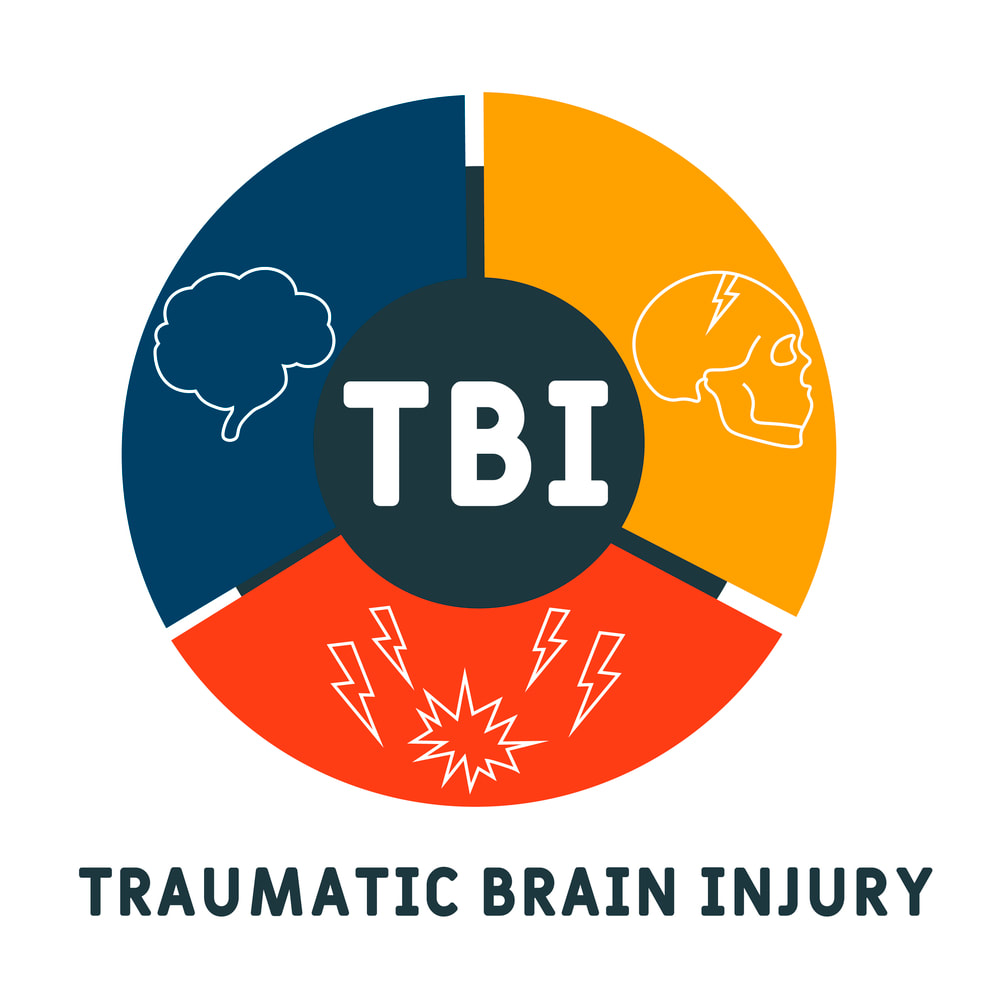TBI Awareness & Vision | National Winter Sports Traumatic Brain Injury (TBI) Awareness Month1/1/2019
January is National Winter Sports Traumatic Brain Injury Awareness Month, a good reminder to take certain precautions when participating in winter sports. What Is A TBI & How Can It Effect Vision?A traumatic brain injury involves an insult or injury to the brain. It often occurs due to a blow to the head. Symptoms of a TBI may be physical, cognitive, and sensory. Problems with vision are a common symptom of a TBI. One study reported by the American Academy of Ophthalmology looked at over 287,000 service members over a 13-year period that sustained a brain injury. About 74 percent of the individuals had some visual problems that were associated with the TBI. Keep in mind that a brain injury does not have to be severe to lead to vision problems. Even a concussion can cause vision issues. Visual symptoms may occur immediately after the injury or hours or days later. A brain injury can affect the eyes in a few ways. Depending on the severity of the blow to the head, it can lead to bleeding into the retina and retinal detachment. A head injury can also cause increased cranial pressure, which means the pressure inside the skull builds. This may in turn increase pressure on the optic nerves in the eyes and lead to vision problems. Vision symptoms due to a TBI may include:
Winter Sports & TBI PreventionTraumatic brain injuries can have a variety of causes, including injuries from winter sports. Winter sports with the highest risk of a TBI include ice climbing, skiing, snowboarding, and ice hockey. Falls, collisions, and blunt trauma to the head may all occur with certain winter sports. You don’t have to give up your favorite winter sports, but you should take certain precautions to decrease your risk of a TBI. Consider the following suggestions: Wear a Properly Fitted Helmet Wearing the right type of helmet for the winter sport you are participating in is one of the best ways to prevent a head injury. Take Lessons If you are new to participating in certain winter sports, such as snowboarding and skiing, it is helpful to take a lesson. During a lesson, you will learn the basics, which might help you stay on your feet. Plus, you’ll learn how to fall more safely and avoid injury. Know Your Limits While it might be fun to head to the top of the mountain or go flying across the ice, know your limits. Injuries happen when you attempt things that are over your limit or head into unfamiliar terrain. Have fun, but approach winter sports with the right amount of caution. Stop While You’re Ahead It’s always tempting to get in one last run. Recognize when you’re feeling tired and your body is showing you signs that it’s ready to quit. Many injuries occur on the last run of the day, when body and mind are ready for a rest. Stay Alert Always be aware of others around you. If an out of control skier or skater comes towards you and you’re not paying attention, it can lead to a collision. Consider the Buddy System Skiers and snowboarders should consider hitting the slopes with a buddy. If you fall or get hurt, a friend can get help. Recognize Symptoms Of A Mild Head InjurySome people miss symptoms of a mild concussion and don’t even realize they sustained a head injury, but even a mild TBI can cause problems, including vision issues, months down the road. Symptoms of a mild head injury include dizziness, confusion, and loss of balance. Anytime you hit your head during a winter sport, it’s best to stop what your doing and get medical attention. Protect Your EyesIt’s possible to sustain an injury to your eyes without hitting your head. Flying objects, such as rocks, twigs, and pucks, can hit you in the eyes. Too much sun exposure can also lead to photokeratitis, which is like having a sunburn on the eye. When participating in winter sports, protect your eyes by wearing properly fitted goggles. Be sure the goggles are impact resistant and made of polycarbonate. It’s also important to have lenses that provide 100 percent UV protection to prevent damage from the sun.
We hope you’ll stay safe, prevent and avoid head injuries, and protect your eyes while you enjoy your favorite winter sports. If you have any questions about winter sports eye safety or your eye health or you would like to schedule an appointment with one of our eye doctors, please call our office at 508-746-8600. Comments are closed.
|
EYE HEALTH BLOGCategories
All
Archives
July 2024
|
|
Kadrmas Eye Care New England
55 Commerce Way, Plymouth, MA 02360
14 Tobey Road, Wareham, MA 02571 133 Falmouth Road (Rt 28), Mashpee, MA 02649 |
Phone Number:
1-508-746-8600 Hours: Monday through Friday — 8 AM – 4:30 PM |


 RSS Feed
RSS Feed
